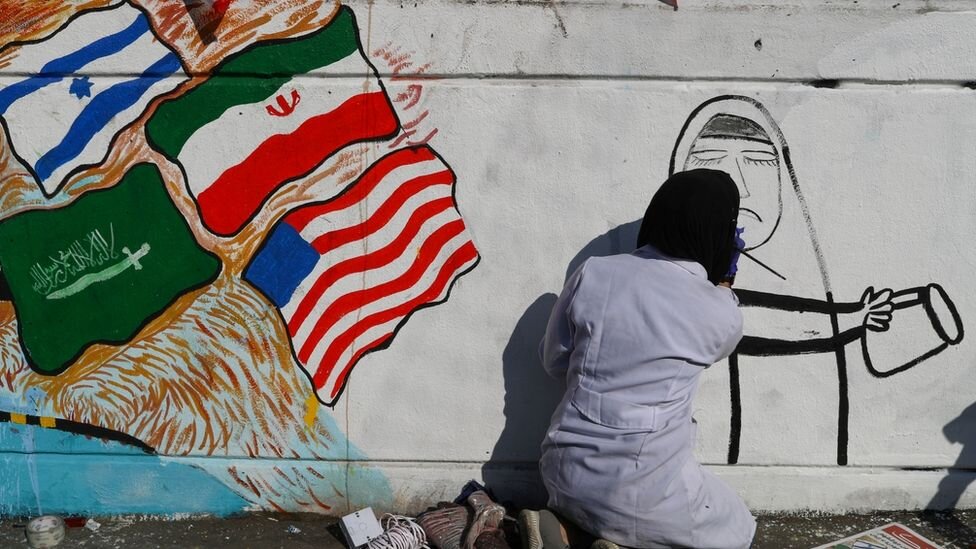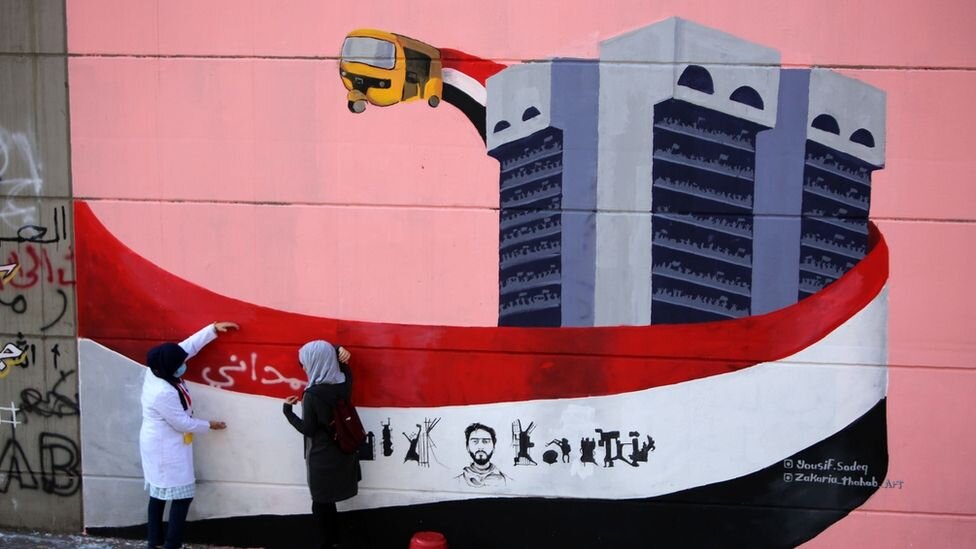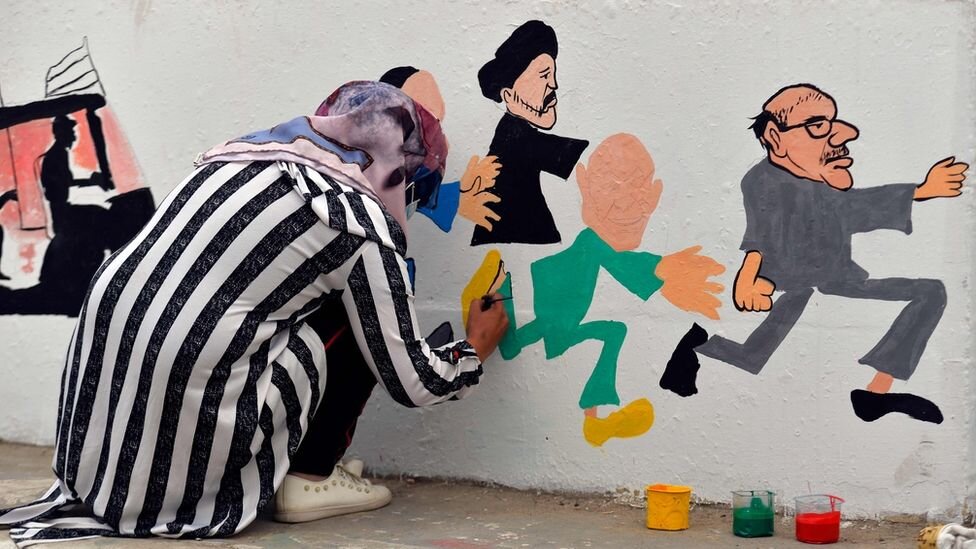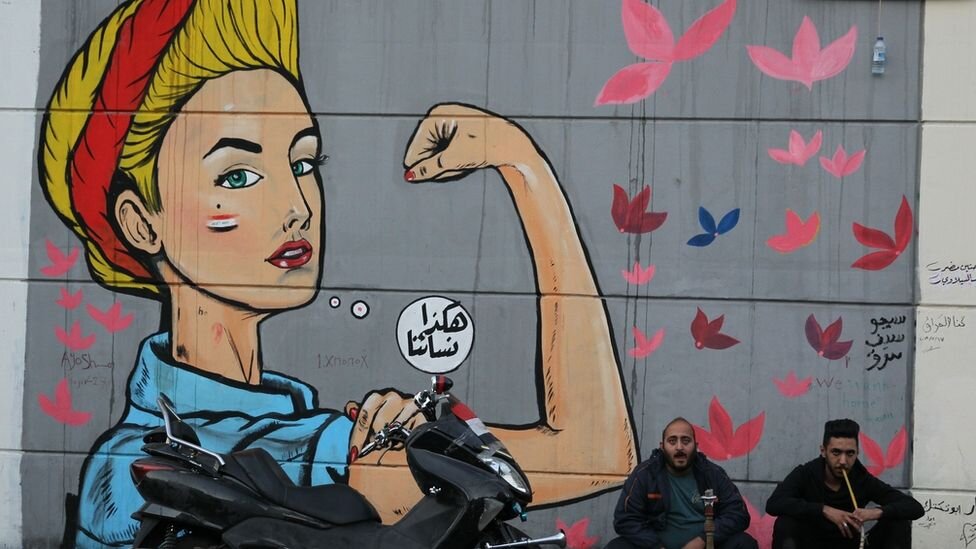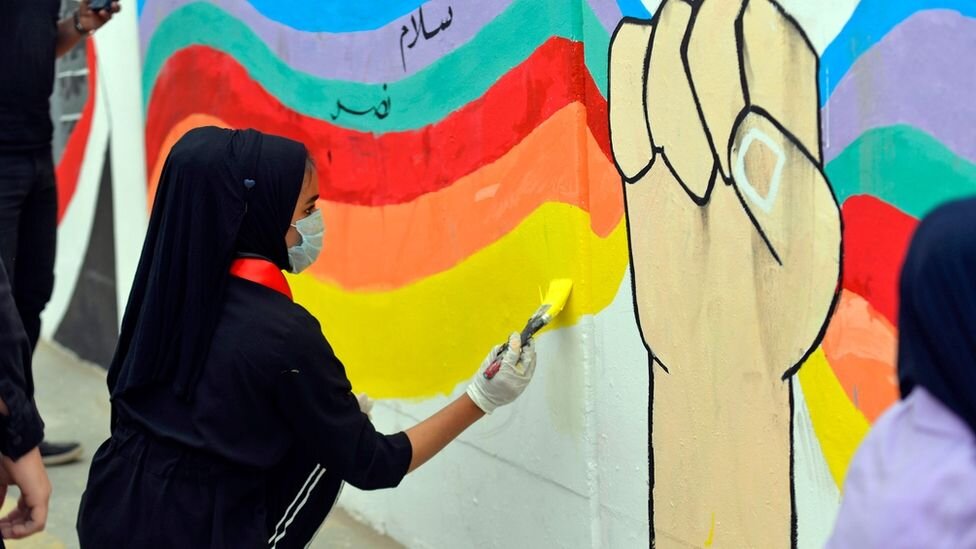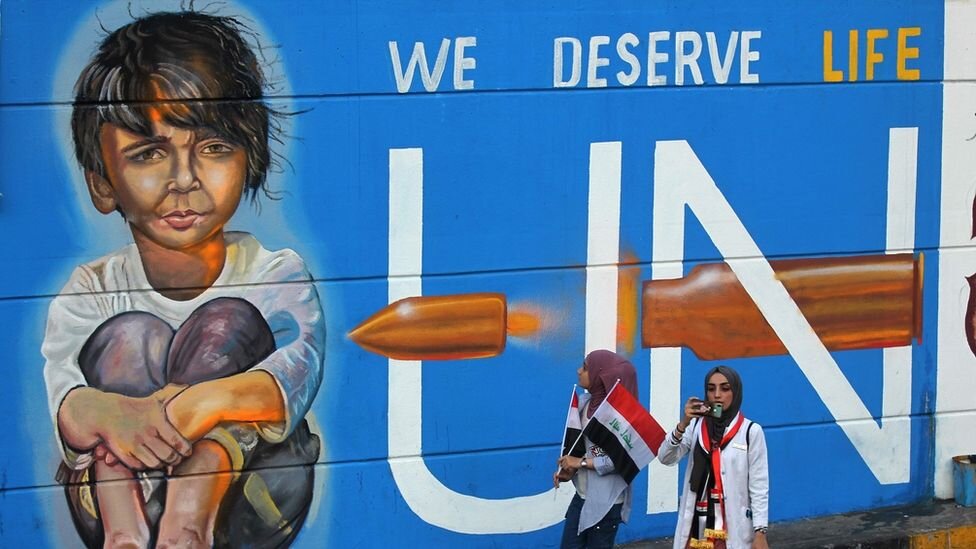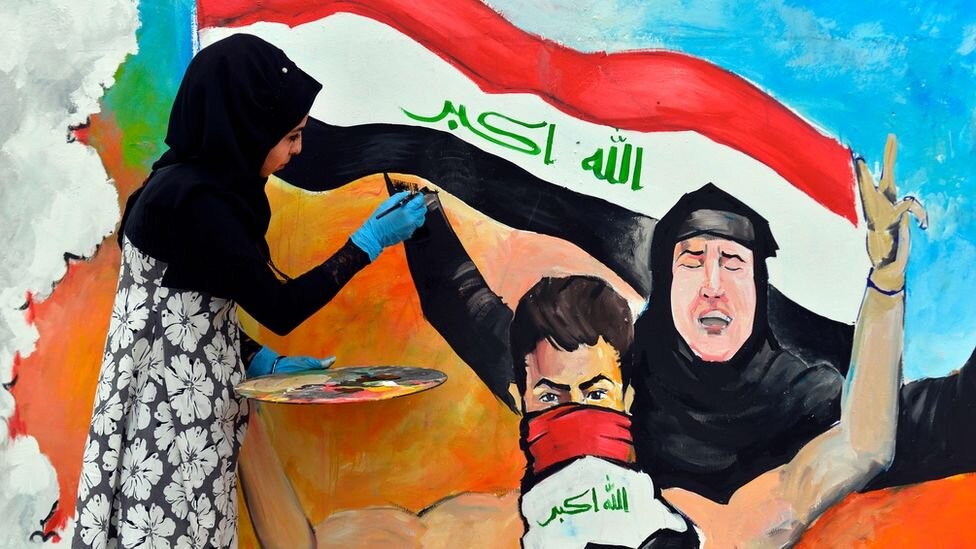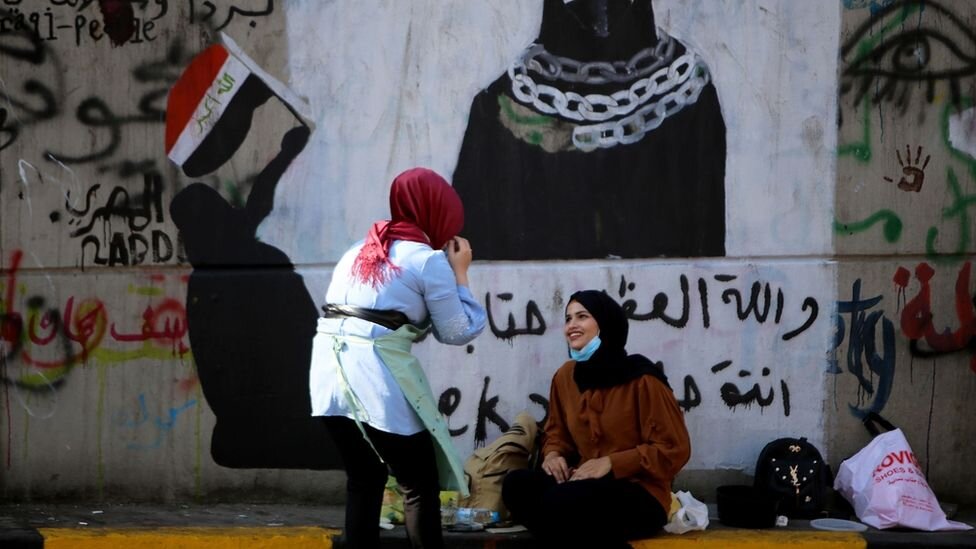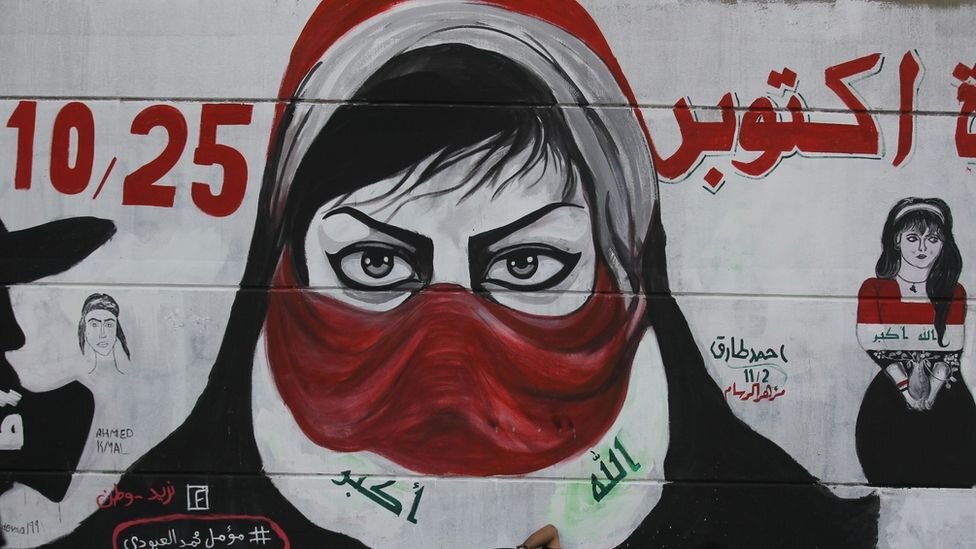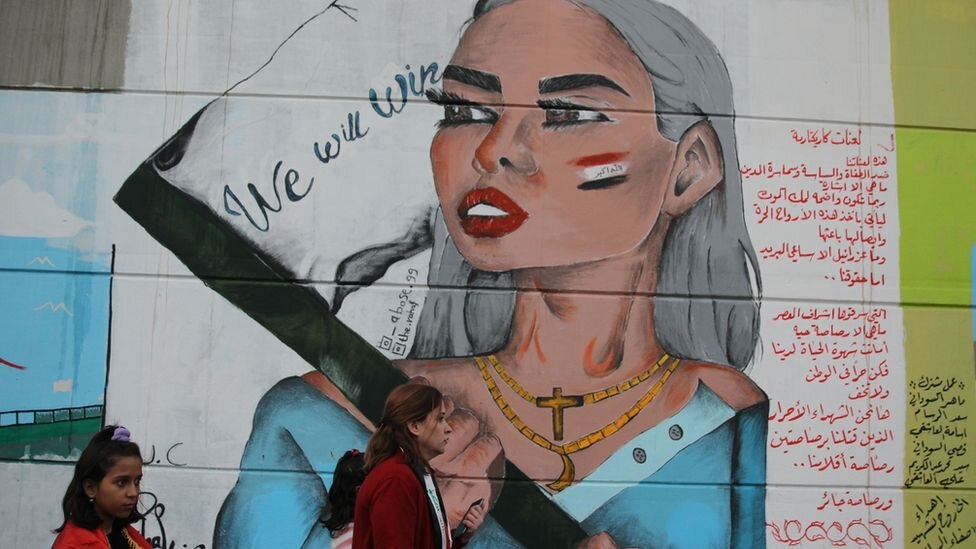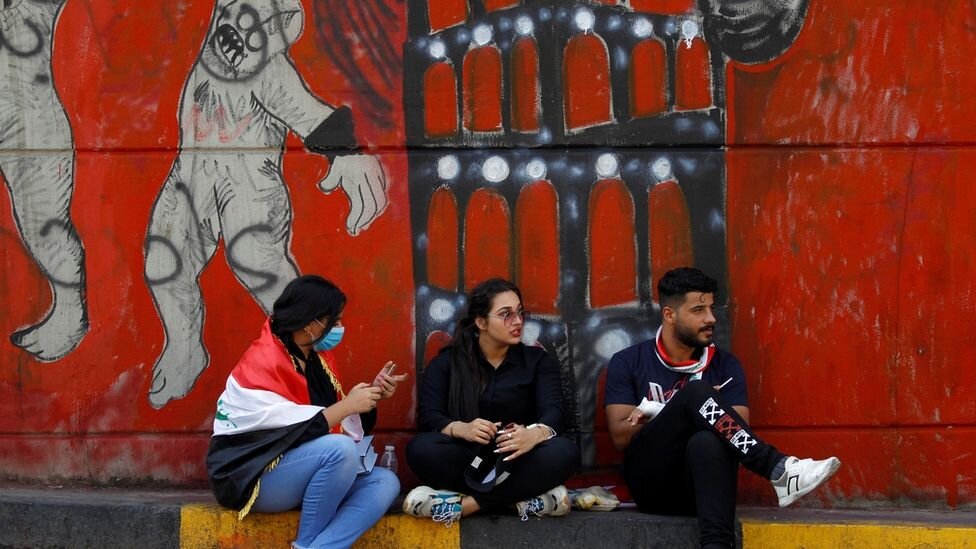The defiant women of the anti-government protests in Iraq - in the streets and painting the walls
Pictures from AFP/Reuters
Since October, a wave of anti-government protests has swept across Iraq. The protesters represent a cross-section of society and, unusually for a traditionally patriarchal country, women have taken a leading role.
Their prominence is celebrated in murals which have sprung up across the capital, Baghdad. [A gallery of those pictures from the BBC site runs above.]
The marches paused in mid-October during the holy Shia pilgrimage of Arbaeen, but when they resumed women began to attend in numbers previously unseen in Iraqi protests.
Rua Khalaf, 31, was one of the few women present at the very beginning of the protests on 1 October when snipers used live rounds to fire directly on demonstrators in the streets.
On 25 October, Khalaf wore an Iraqi flag wrapped close around her shoulders, and her face turned against the drifting teargas.
Her friend snapped a photo of her profile and posted it online – and suddenly her face was everywhere.
She goes to the square daily, coordinating food and medical support for the protesters and says she is often recognised on the street.
Now Khalaf’s face, like Mahdawi’s, has become iconic within Tahrir Square. Graffiti artists plan to paint a portrait of her on a wide wall in the Saadoun underpass leading to Tahrir Square, now an informal gallery of revolutionary art.
“The participation of women in the protests broke the barriers between men and women; it changed the typical view of women that they stay away from taking part in politics,” she says. Refal al-Aziz, 26, a protester and journalist, made a point to publish a picture of herself putting on red lipstick in the mirror of a tuk-tuk.
The picture went viral, getting shared across social media and published on TV.
“I wanted to publish this picture to represent this magnificent participation of women. I thought the thing that represents femininity worldwide is red lipstick… and the thing that symbolises the protests is the tuk-tuk,” Aziz says.
The humble three-wheeled vehicle has become famous in the protest for nimbly wheeling to the most dangerous areas and rescuing the injured. “Women and tuk-tuks, no one expected they would be there with such strength!” Aziz continues.
“Many thought that Iraqi women were weak but the protests proved the opposite. There are female doctors and volunteers [in front of the security forces] facing live bullets and teargas canisters – and they are not afraid.”

